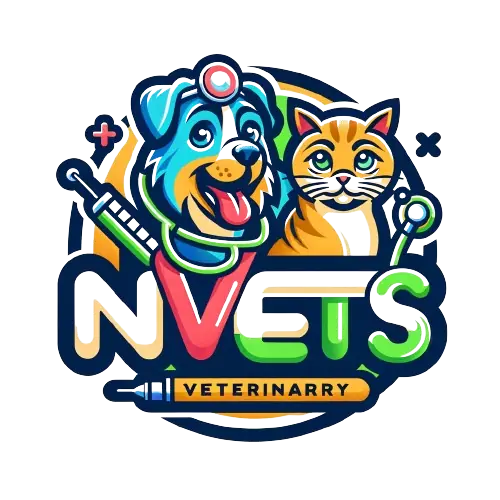Here is your guide to the wonderful world of animal nutrition, where what you feed your beloved companion can make all the difference to their health and well-being. Nutrition is not only essential for growth and development, but it also plays a vital role in performance, productivity, immune system function, the prevention of diseases, and even the cultivation of sustainable agriculture practices as well. Throughout this blog post, we’ll explore the importance of animal nutrition and how you can ensure your pets get the nutrients they need to live a long and healthy life. Let’s get started, shall we?
What is Animal Nutrition, and Why is it Important
Animal nutrition refers to the study of how animals obtain and utilize nutrients from their diet. It involves understanding food composition, digestive processes, nutrient absorption, metabolism, and excretion. Proper animal nutrition is essential for maintaining optimal health and preventing diseases.
Essential nutrients such as proteins, fats, carbohydrates, vitamins, minerals, and water are necessary for an animal’s growth and development. Without these nutrients in appropriate amounts or ratios, malnutrition may cause poor growth rates or even death.
Different animals require different diets depending on age, breed size, and activity levels. For instance, dogs have additional nutritional requirements than cats because they belong to other species with unique dietary needs.

The proper nutrition of our pets plays a vital role in ensuring their health throughout their lives. Providing them with a balanced diet containing all the essential nutrients they need at appropriate proportions will improve not only their physical health but also enhance their overall well-being, which will maximize production outcomes such as milk yield in dairy cows or egg-laying capacity in poultry birds while reducing input costs by mitigating diseases resulting in a sustainable agriculture strategy.
Essential Nutrients for Animals and How to Make Sure They Get Enough of Them
Like humans, animals require a balanced diet with essential nutrients to maintain optimal health and well-being. These essential nutrients include carbohydrates, proteins, fats, vitamins, minerals, and water.
Carbohydrates are the primary energy source for animals as they provide glucose essential for proper body function. Proteins help build and repair tissues, while fats provide insulation and aid in hormone production.
Vitamins and minerals are crucial in supporting the immune system, maintaining healthy bones and teeth, and aiding in metabolism. Water is also vital for hydration as it carries essential nutrients throughout the body.
To ensure your animal receives enough of these essential nutrients, it’s important to choose high-quality pet food that meets its nutritional needs. Read labels carefully to determine if the food contains all necessary ingredients, or consider consulting with a veterinarian or animal nutritionist for guidance on specific dietary requirements.
Additionally, feeding schedules should be consistent to avoid overfeeding or underfeeding. Providing appropriate portion sizes can contribute to maintaining an ideal weight while reducing the risk of obesity-related health issues.
Providing your animal with a balanced diet rich in essential nutrients will support their overall health and well-being while promoting growth, and performance productivity optimization, thus ensuring sustainable agriculture practices that encourage disease prevention & immunity development.
Understanding the Different Types of Pet Food & Their Benefits
Several types of pet food are available in the market, each with its own set of benefits.

Understanding the Different Types of Pet Food & Their Benefits:
When it comes to feeding your pets, choosing the right type of food can be daunting. With so many options available in the market, it’s essential to understand the different kinds of pet food and their benefits.
Dry food is one of the most common types of pet food available. It’s convenient, easy to store, and has a long shelf life. Dry foods are also great for maintaining dental health as they help clean teeth.
Canned or wet foods contain more moisture than dry foods, making them an excellent option for pets without water. They’re also palatable and more accessible to digest than dry foods.
Semi-moist or soft-moist dog treats are high in sugar content and not recommended for regular feeding as they may lead to obesity or other health issues.
Raw diets offer several benefits, such as improved digestion, healthier skin and coats, increased energy levels, and better weight management. However, raw diets require careful handling due to bacterial contamination risks associated with raw meat consumption.
Regardless of what type of pet food you choose for your furry friend(s), always ensure it meets their nutritional requirements according to their age group and lifestyle needs.
The Significance of Proper Rationing and Feeding Schedules for Animals
Proper rationing and feeding schedules are crucial for ensuring the health and well-being of animals. Feeding them the right amount of nutrients at the right time can promote their growth, productivity, and immune system and prevent diseases.
Understandably, different species have different nutritional needs. For instance, cats require more protein than dogs do because they are obligate carnivores. On the other hand, horses need more fiber in their diet to maintain proper gut health.
Overfeeding or underfeeding animals can cause various health problems, such as obesity or malnourishment. Therefore, following a feeding schedule that matches their daily requirements based on age, breed size, and activity level is essential.
Moreover, pet owners should also be mindful of giving treats or table scraps, which could upset an animal’s balanced diet leading to weight gain or nutrient deficiencies.
Nutrition is essential to the production, health, and welfare of animals. For animals to maintain good health, prevent disease, and promote growth and reproduction, proper nutrition is essential. Different species have different nutritional requirements, and providing each animal with a balanced diet is necessary to meet their nutritional needs.
It is important to provide adequate nutrition to animals and the environment for the sake of the environment and society. In addition to reducing animal production’s environmental impact, proper feeding practices can also increase the efficiency of food production. Moreover, consumers are increasingly seeking animal products produced sustainably and ethically.
It is, therefore, imperative that animal owners, producers, and veterinarians understand the importance of animal nutrition and practice sound feeding practices to ensure their animals’ health. Consequently, animals’ health and well-being will be guaranteed, food production will be sustainable, and consumers will be satisfied with the food produced.

